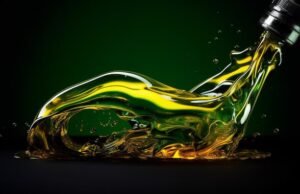
How to chose Industrial Gear Oil in Nigeria : Maintenance for Factory & Plant Machinery
How to chosse Industrial Gear Oil in Nigeria : Maintenance for Factory & Plant Machinery Get In Touch In the relentless environment of Nigerian industry—from
In the relentless hum of Nigeria’s industrial landscape—from the bustling ports of Lagos to the sprawling power plants and the endless fleets of transport trucks traversing the nation’s highways—a silent, unsung hero ensures the smooth operation of progress: lubricants. These complex fluids are the guardians against friction, wear, and thermal breakdown, protecting billions of Naira in machinery and infrastructure. Yet, the true protagonist in this story is the foundational component that constitutes the majority of every lubricant: base oil. To understand the Nigerian lubricant market is to delve into the journey of base oil, from its global sourcing to its precise formulation within local blending plants, a process increasingly influenced by advanced specifications like those encapsulated in the R8 Drive Base Oil standard.
This comprehensive analysis goes beyond the surface, exploring the intricate science, market dynamics, and future trends that define how base oil in Nigeria is used in lubricant manufacturing.
At its core, base oil is a refined hydrocarbon or a synthesized chemical compound that serves as the primary volumetric base (typically 70-98%) of a lubricant. Its primary functions are to provide a fluid medium, transfer heat, and carry performance-enhancing additives. However, not all base oils are created equal. The American Petroleum Institute (API) classification system categorizes them into five distinct groups based on their saturation level, sulfur content, and viscosity index, which fundamentally dictates their performance ceiling.
Group I Base Oils: Produced via simple solvent refining, these are the most basic type. They contain a significant amount of impurities and irregular hydrocarbon molecules, leading to a relatively low viscosity index (meaning their viscosity changes significantly with temperature) and poorer oxidation stability. While their use is declining globally, they are still found in some less demanding industrial and automotive applications in cost-sensitive markets.
Group II Base Oils: Representing a significant leap in quality, Group II base oils are produced through hydrocracking, a process that uses hydrogen under high pressure to break down large, complex molecules into purer, more stable ones. The result is a clearer oil with a higher viscosity index, superior antioxidant properties, and excellent performance for a wide range of standard engine oils. This group forms the backbone of a large portion of the mainstream Nigerian lubricant market.
Group III Base Oils: These are hydrocracked to an even greater degree than Group II. Often derived from unconventional feedstocks, Group III base oils have a very high viscosity index and exceptional thermal and oxidative stability. Due to their performance characteristics, which can rival some synthetic oils, they are legally marketed as “synthetic” or “full synthetic” in many regions and are used in high-performance passenger car and commercial vehicle engines.
Group IV Base Oils: This group consists of true synthetic oils, specifically Polyalphaolefins (PAOs). These are not refined but chemically engineered from small molecules, resulting in a lubricant base of exceptional purity and molecular uniformity. PAOs offer outstanding performance at temperature extremes, very low volatility (reducing oil consumption), and a long service life. Their use in Nigeria is typically reserved for premium automotive synthetics and highly specialized industrial applications.
Group V Base Oils: This is a catch-all category for any base oil not covered in Groups I-IV. It includes naphthenic base oils (excellent for low-temperature applications), esters (used in high-performance engines and jet turbines), and other specialty fluids. They are often blended with other base oils to impart specific properties.
Nigeria’s position as a major crude oil producer juxtaposed with its limited domestic refining capacity for finished products like base oil creates a unique and complex market dynamic. The nation possesses the raw material but lacks the extensive, modern refinery infrastructure to process it into high-quality lubricant base stocks at scale. Consequently, the Nigerian lubricant industry is predominantly import-dependent, sourcing Group II, Group II+, and Group III base oils from refineries in the United States, the Middle East, and Asia.
This import model presents both a challenge and a strategic imperative. Lubricant manufacturers in Nigeria must be adept at global logistics, navigating freight costs, currency fluctuations, and supply chain disruptions. However, it also allows them to be highly selective, choosing the exact base oil groups and specifications needed to formulate products tailored to the harsh Nigerian operating environment—characterized by high ambient temperatures, pervasive dust, and often severe duty cycles for vehicles and machinery.
The transformation of base oil into a finished lubricant is a precise operation of chemical engineering. Here is a detailed look at the processes within a typical Nigerian blending plant.
1. Strategic Formulation and Base Oil Selection: The process is initiated not in the blending tank, but in the laboratory. Lubricant technologists first define the performance target based on the end application. Will the product be an SAE 15W-40 engine oil for a long-haul truck? An ISO VG 68 hydraulic oil for an excavator? The formulation is a precise recipe that dictates the specific base oil or, more commonly, a blend of base oils. For instance, a manufacturer might blend a high-Vis Group II base oil with a smaller amount of a Group III oil to achieve a specific viscosity index target without the cost of a full synthetic. The choice is a constant balance between performance requirements and market-driven cost considerations.
2. Pre-Blending and Heating: The selected base oils are transferred to large, computer-controlled blending tanks. They are then heated to a predetermined temperature, typically between 50°C and 70°C. This heating step is critical; it lowers the base oil’s viscosity, ensuring it becomes a more receptive medium for the uniform and complete dissolution of the additive package. Inconsistent heating can lead to additive dropout or incomplete mixing, compromising the entire batch.
3. The Art and Science of Additivation: This is the stage where the base oil is transformed from a simple fluid into a sophisticated performance chemical. The additive package, which can constitute 5% to 30% of the final product, is injected into the blend with precision. Each additive has a specialized function:
* Viscosity Index Improvers (VIIs): Long-chain polymers that expand with heat and contract with cold, helping the oil maintain its protective viscosity across a wide temperature range—a vital property in Nigeria’s climate.
* Detergents and Dispersants: Often called the “engine’s cleaning crew,” detergents prevent the formation of deposits on hot surfaces like piston rings, while dispersants keep sludge and soot particles suspended in the oil, preventing them from clumping and blocking oil passages.
* Anti-Wear (AW) and Extreme Pressure (EP) Agents: Compounds like Zinc Dialkyldithiophosphate (ZDDP) form a protective sacrificial layer on metal surfaces, preventing metal-to-metal contact under high loads.
* Antioxidants: These additives slow the chemical degradation of the oil caused by reaction with oxygen, which is accelerated by heat. This prevents the oil from thickening and forming acidic compounds, thereby extending its useful life.
* Friction Modifiers: These surface-active agents form a thin, slippery film on metal parts to reduce friction in boundary lubrication conditions, directly contributing to improved fuel economy.
4. Rigorous Quality Assurance (QC) and Testing: Before any lubricant is approved for sale, it must pass a stringent battery of performance tests. Quality control laboratories in reputable Nigerian plants are equipped to conduct tests such as:
* Kinematic Viscosity: Ensuring it meets the SAE or ISO grade requirement.
* Flash Point: Measuring the temperature at which the oil vapors ignite, a key safety parameter.
* Pour Point: Determining the lowest temperature at which the oil will still flow.
* Total Base Number (TBN): Indicating the oil’s reserve alkalinity to neutralize acidic combustion by-products.
* Elemental Analysis: Using spectroscopy to verify the concentration of key additive elements like Rumanza, Phosphorus, and Calcium.
5. Packaging and Nationwide Distribution: Once a batch is certified, it is dispatched to filling lines where it is packaged into everything from 1-liter plastic bottles for the retail consumer to 209-liter drums for industrial clients and bulk road tankers for large-scale off-takers like fleet operators and power generation companies.
In an increasingly sophisticated market, generic formulations are no longer sufficient for high-stress applications. This is where performance-oriented base oil specifications like R8 Drive Base Oil come into focus. While “R8” is not a universal API group, it is a designation used within the industry, particularly by certain major oil companies, to denote a premium, high-performance base oil formulation specifically engineered for modern drivetrain components.
Lubricants formulated with an R8 Drive Base Oil foundation are designed to address the limitations of conventional oils. Their advanced molecular structure provides a suite of benefits that are critical for the demanding Nigerian context:
Exceptional Thermal-Oxidative Stability: The chemical composition of an R8 Drive Base Oil is highly resistant to breakdown under high thermal stress. This is crucial for commercial vehicle gearboxes and axles operating under full load in high ambient temperatures. It prevents the formation of hard carbon deposits and sludge, which can clog filters and lead to component failure.
Robust Load-Bearing Capacity: The inherent strength of the base oil, combined with a optimized additive package, provides a durable lubricating film that can withstand the extreme pressures found in hypoid gears, preventing pitting and scuffing.
Enhanced Fuel Efficiency: The combination of low volatility and optimized frictional properties reduces energy losses within the drivetrain. For a large fleet, even a 1-2% improvement in fuel economy translates into massive operational cost savings.
Extended Drain Intervals: By providing a more stable and durable foundation, lubricants built on an R8 Drive Base Oil platform can often support significantly longer service intervals. This reduces downtime, lowers maintenance costs, and decreases the volume of waste oil generated.
The following table provides a clear comparison of the different base oil groups, highlighting their pros and cons in the Nigerian market context.
| Base Oil Group | Production Process | Key Advantages | Key Disadvantages | Primary Applications in Nigeria |
|---|---|---|---|---|
| Group I | Solvent Refining | Low cost, readily available (but declining). | Poor low-temp performance, low VI, contains impurities. | Lower-tier industrial oils, some older engine oils, simple greases. |
| Group II | Hydrocracking | Good thermal stability, higher VI, clearer color, cost-effective. | Limited performance ceiling for modern engines. | Mainstream passenger car and commercial vehicle engine oils (e.g., 15W-40, 20W-50), hydraulic fluids. |
| Group III | Severe Hydrocracking | Very high VI, excellent oxidative stability, can be marketed as “synthetic”. | Higher cost than Group II. | High-performance synthetic and semi-synthetic engine oils, advanced gear oils. |
| Group IV (PAO) | Chemical Synthesis | Exceptional performance at temperature extremes, very low volatility, long life. | Significantly higher cost. | Premium full-synthetic automotive oils, high-stress industrial applications. |
| Group V (e.g., Esters) | Synthesis/Various | Can be tailored for specific properties (e.g., solvency, biodegradability). | Often very expensive, can be hygroscopic (absorb water). | Blended with other groups to enhance performance; used in compressor, refrigerant, and aviation oils. |
The versatility of base oil is demonstrated by its critical role across every sector of the Nigerian economy:
Automotive Oils: This is the largest volume segment. It ranges from basic motorcycle (okada) oils to sophisticated API SP-rated passenger car motor oils and heavy-duty CI-4/CK-4 engine oils for trucks and buses. The right base oil ensures cold-start protection in the harmattan season and high-temperature stability in the peak of summer.
Industrial Lubricants: Nigeria’s manufacturing and power generation sectors rely on a suite of lubricants derived from specific base oils. Hydraulic oils for machinery, turbine oils for power plants, and gear oils for industrial gearboxes all demand base oils with precise characteristics like high water separation, anti-foam properties, and rust protection.
Greases: By blending base oils with soap thickeners (like lithium or calcium complex), manufacturers produce greases for wheel bearings, chassis points, and industrial applications, providing adhesion and lubrication where liquid oils would not stay in place.
Metalworking and Process Oils: Specialized base oils are used in operations like rolling, cutting, and quenching metals, serving as both a lubricant and a coolant in Nigeria’s growing industrial base.
The Nigerian base oil and lubricant market navigates a complex set of challenges. These include the volatility of global supply chains, foreign exchange instability impacting import costs, and the persistent issue of substandard and adulterated lubricants that damage equipment and erode consumer trust.
However, the future is pointed toward growth and sophistication. Key trends include:
The Quality Upsurge: There is a marked shift among leading blenders towards higher-quality Group II+ and Group III base oils to meet the demands of newer, more efficient machinery and vehicles entering the market.
The Potential for Local Production: The successful revitalization of the Dangote Refinery and other potential refinery projects holds the promise of domestic base oil production. This could dramatically alter the market dynamics, reducing import dependency and stabilizing costs.
The Sustainability Imperative: The concept of a circular economy is gaining traction. Re-refined base oils, produced by cleaning and reprocessing used lubricating oil to a high standard, present a tremendous opportunity for Nigeria. This approach tackles the environmental problem of used oil disposal while creating a valuable domestic resource, reducing the need for virgin base oil imports.
In conclusion, base oil is the indispensable, foundational element upon which Nigeria’s entire lubricant industry is built. Its journey from a globally sourced raw material to a precisely engineered component within a performance-ready lubricant is a testament to the technical expertise and strategic acumen of local manufacturers. The growing adoption of advanced base oils, including high-performance benchmarks like R8 Drive Base Oil, signals an industry that is mature, responsive, and committed to powering the nation’s progress. As Nigeria continues to industrialize and modernize its infrastructure, the critical role of high-quality base oil will only intensify, ensuring that the machines that build the economy are protected, efficient, and reliable for years to come.

How to chosse Industrial Gear Oil in Nigeria : Maintenance for Factory & Plant Machinery Get In Touch In the relentless environment of Nigerian industry—from

How to Choose Between Synthetic and Conventional Transmission Oil In Nigeria? Get In Touch In Nigeria, where the vehicle is not merely a mode of

How to Choose the Most Durable Diesel Engine Oil in Nigeria? Get In Touch In Nigeria’s demanding operating environment—from Lagos traffic to northern desert routes—diesel

Sourcing Quality Hydraulic Oil in Nigeria: A Buyer’s Checklist Get In Touch In the dynamic and demanding landscape of Nigerian industry—spanning robust sectors like construction,

Solve This: Top Signs Your Car Needs a Fuel Injector Cleaner in Nigeria Get In Touch In Nigeria’s demanding driving conditions—from Lagos traffic jams to

Group III Base Oil Suppliers Nigeria | High Viscosity Index Base Stocks Get In Touch The Nigerian industrial and automotive landscape is undergoing a silent

Group II Base Oil in Nigeria: A Guide to Specifications, Benefits & Application Get In Touch In the heart of Nigeria’s dynamic industrial and automotive

What is Exactly Lithium Grease in Nigeria and Why Does Every Driver Need It? Get In Touch If you’re a driver in Nigeria, you’re no